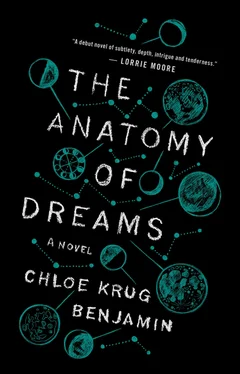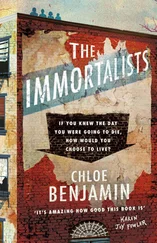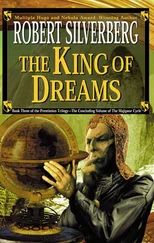“I’m sorry,” said Gabe.
He lay back heavily, and our bodies came apart.
“It’s okay,” I said, disentangling my legs from around his waist. My knees popped, the skin rubbed pink.
It must have taken minutes for us to notice that the doorbell was ringing. By the time we scrambled into our clothes and turned off the radio, someone was rapping on the door. Who could it be but Keller? We slipped down the stairs in our sweatpants and socks. Neither of us bothered to look through the peephole before Gabe unlocked the door.
Two police officers stood on the porch. One was a stocky younger man with ruddy skin and a brown mustache, precisely clipped; the other was a tall, lean woman with deep-set eyes and a tight bun, which tugged at her forehead.
“Dane County Police,” said the man.
Both cops pulled out their ID badges and flipped open the leather card cases before putting them away again. The woman took a small notebook from her belt and flicked up the cover.
“Am I looking at Gabe and Sylvie Lennox?”
“I’m Patterson,” I said. “Sylvie Patterson.”
“Gabe Lennox and Syl-vie Patterson.” The woman squinted at her notebook, writing quickly. “Lived here long?”
“Since August,” said Gabe. “What is this about?”
The woman looked up at us. “Is that your car in the driveway?”
“We don’t have to answer these questions,” said Gabe.
I squeezed Gabe’s arm. “It’s our car,” I said.
“Anyone else in the house?”
Gabe and I didn’t flinch, but a current passed between us.
“Is this about Anne?” I asked before I had the sense to stop myself.
“Anne?” asked the man, taking a step forward. He was broad across the chest, and he strained in his belted jacket. He and his colleague exchanged looks, and she scribbled again on the small pad. “Is Anne in the house?”
“No one is in the house,” said Gabe. “No one else is in the house.”
“Mind if we confirm that?”
It was the woman this time, her eyebrows cocked.
“Yeah, I do mind if you confirm that.” Gabe’s face was fixed with tension. “I know my rights. Tell me what this is about and we’ll go from there.”
The two cops exchanged another glance. Then the man sighed, and the woman flipped her notebook closed.
“Listen.” The man inclined his head confidentially. “You want to tell us what you were thinking making all that noise at twelve thirty on a Tuesday night?”
“That’s all this is?” spluttered Gabe. “A—a noise complaint?”
“Hey, buddy, hey.” The cop put his hands up. “We take noise complaints very seriously in this town.”
“I bet you do. And I bet you think you’re really fucking funny.” Gabe’s voice was rising, his neck veined. “Bet you thought it was hilarious, scaring us like that. You know what I think is fucking funny? Cops not doing their jobs. Cops coming to my front door, hassling me about a fucking noise complaint , when people are killing each other out there—”
“Not helping your case, my man,” said the cop, taking another step forward.
“Stop it, Gabe.” I took his wrists in mine, digging my nails into the thin underskin. “Let it go.”
Gabe had stopped shouting, but his face shook. A drop of sweat quivered at the tip of his nose.
“We’ll stop, I promise,” I said, keeping hold of him. “We’ve already turned the music off. We were having fun, that’s all. It was stupid.”
The man crossed his arms. His partner stared at us over the bridge of her nose.
“Understand, you are this close”—she squinted—“from a misdemeanor. We get another call, things get more serious.”
I nodded. Gabe wriggled out of my grasp and watched from the porch as the cops walked back to their car.
“Hey,” he shouted, just before they opened the doors. “Who reported us?”
The man opened the driver’s door and got inside without answering. The woman covered her eyes with one hand, as if trying to see us through the glare of the streetlights.
We didn’t notice that the light in Thom and Janna’s bedroom was also on until it abruptly went out, throwing the policewoman’s face into shadow. She nodded slightly. Then she climbed into the car and yanked the door shut. The car began to move, blinking in the night.
I locked the door. Gabe turned away from me and headed for the stairs. But before he got there, he turned abruptly and slammed the heel of his palm into the living room wall.
“Gabe,” I gasped.
“What kind of fucking business did they have reporting us?”
“Maybe we really were being loud.”
“Bullshit. They were our friends.”
His forehead was dented with anger, the folds around his eyes so deep a penny could have balanced inside them. He glared at me, waiting for a response. But I wanted to be back in our room, jumping on the bed with the radio on and my stomach in my throat. I wanted to see Gabe playing air guitar with as much vigor as any other twenty-four-year-old, his hair streaking the air. I wanted him to be blurry again.
PART THREE: MORNING

16. MARTHA’S VINEYARD, MASSACHUSETTS, 2010
This summer, I’ve had plenty of time to think about my years with Keller and what they meant to me. I could have taken a plane to the Vineyard, but Hannah insisted I drive. See the country, take my time. I’ve saved up a bit of money—enough for a motel room in Cheyenne and another outside Iowa City. The first thing I do, when I get to a new room, is stand in front of the air-conditioning with my arms spread out like plane wings. It’s been a hot summer, and I’ve pitied the animals I’ve seen on the way: the thick-skinned sheep, horses swishing their tails like fans.
It isn’t so awful, being alone, not when you get used to it. Every decision’s my own. Whenever I like, I can stop at a gas station for cheap coffee or Slim Jims. If there’s a fruit stand, I’ll pull to the side of the highway—I keep the bags in the passenger seat, knotted to keep out flies—and sometimes I get out for a roadside attraction: the Angel Museum in Beloit, Wisconsin, or Amarillo’s Cadillac Ranch. Mostly, though, I try to make good time. That way, when I touch down for the night, it feels deserved.
At each motel, after I stand in front of the air-conditioning—or, for the cheaper ones, the fan—I pull on my old Speedo one-piece and go out to the pool. Even the motels without air-conditioning have pools. The color is always the same: a too-bright, mouthwash aqua. Smallish and rectangular, lined by a curved ledge of concrete and rows of beach chairs in various stages of decline, the pools shine like beacons amid the surrounding mediocrity. I ease myself into the deep end—too tall to dive like the children holding life preservers, or too old.
It feels good to be surrounded by families, even if they aren’t my own: the children chicken-fighting with a viciousness reserved for siblings while their wide-set mothers yell for leniency. After I swim, I set up on one of the folding chairs with a hotel towel and chip away at the twenty-seven books I loaded onto my e-reader before the trip. When I was studying for my preliminary exams, it was more—a hundred and sixty, give or take—but I’m now halfway through my dissertation, and my reading has become more focused.
How different it would have been if e-readers had been around when I worked with Keller! None of the fragrant, heavy books, their pages wilted as old dollar bills. The Kindle was too practical to resist—that sleek little machine, light as a paperback—but I miss the days when books were weighty and tangible. If all goes as planned, I’ll graduate in a year, apply for jobs this fall. I’d hoped this trip would give me time to read the rest of my texts, and I think I’m on track. If I’m honest, it helps to have a distraction—to believe that my mission this summer is to finish my reading, and not something else.
Читать дальше













